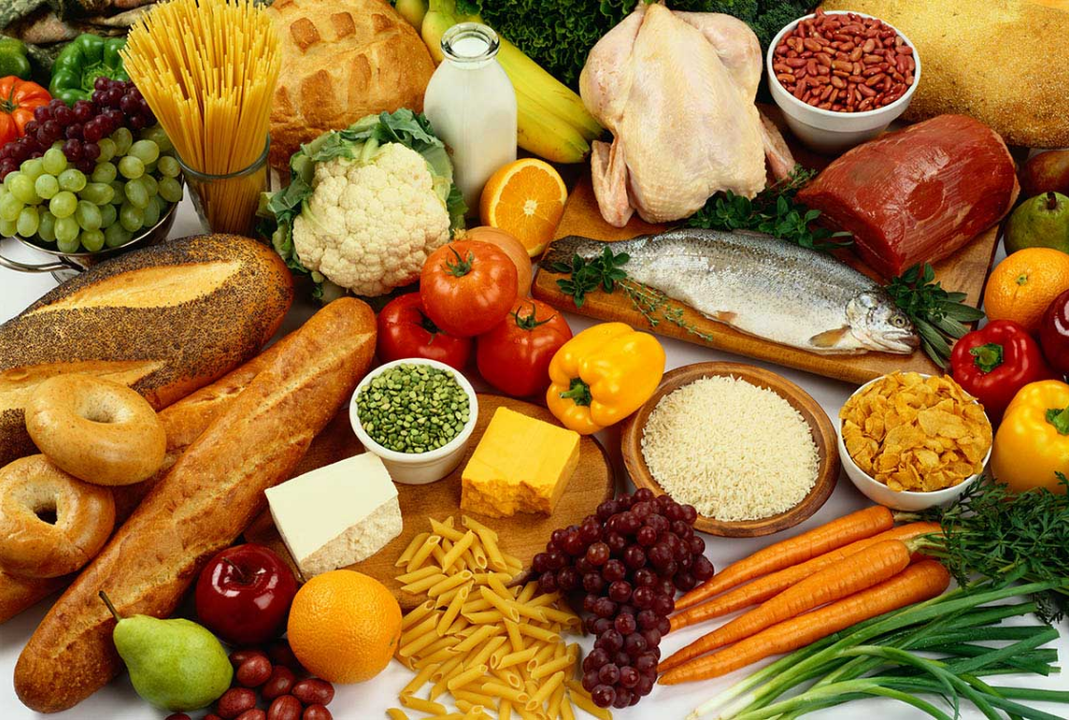In the mid-20th century, nutritionists sounded the alarm about the growing number of overweight patients suffering from cardiovascular disease.
After analyzing the nutrition of residents of European countries, it was found that residents of Mediterranean countries rarely suffer from obesity and are in good health. what is the secretIn the special nutrition of the inhabitants of these regions. Contains only fresh products. The second secret is olive oil and wine.
According to research, they are needed for the production of hormones that regulate cell metabolism and prevent the development of serious diseases. American doctors are convinced that such a diet is not an immediate, but a way to lose weight forever.

Basic principles of the Mediterranean diet and what foods are preferred
This is a special diet based on products from 16 Mediterranean countries. This includes Spanish, Italian and Greek dishes. The menu of the inhabitants of these countries consists mainly of nuts, oily fish, unlimited amounts of fruits and vegetables, legumes, cereals, greens, dairy products, dry wine, cheeses, olive oil and other products. Preference is given to natural plant foods and protein intake within the norm.
Need to eat 5 times a day. Only fresh fruit between meals. Prefer carbohydrates for breakfast. It can be pita bread, wholemeal bread, whole wheat pasta. Carbohydrates provide healthy energy to help you stay awake throughout the day. Instead, dinner should be light and rich in vegetables and protein. These include: fish, lean meat, eggs.
It is also recommended to consume up to 1 kilogram of vegetables per day. They can be boiled or raw. Allowed foods include carrots, cabbage, potatoes and pumpkin. Be sure to include legumes and whole grains in your diet.
A glass of red wine is allowed for lunch or dinner. Drink 7-8 glasses of water a day, preferably before meals. Nutrition can be adjusted. For example, use pumpkin or corn oil instead of olive oil. Pick seasonal fruits.
Cook fish and seafood up to three times a week. Meat should be limited. Rabbit meat, lean pork fillet or beef is allowed to eat 100 grams per serving. Bread uses only whole grains.
A weekly Mediterranean diet menu and what foods it includes
You can change the order of the day, the main thing is to maintain the sequence of meals.
Monday
- Breakfast: bread, jam, tea without sugar.
- Afternoon snack: low-fat kefir.
- Dinner: baked beans with vegetables.
- Second lunch snack: a glass of yogurt, cheese and bread.
- Dinner: fish cooked rice, boiled.
Tuesday
- Breakfast: low-fat kefir, muesli.
- First lunch: olives, fish salad.
- Lunch: baked vegetables and spaghetti.
- Second lunch: boiled eggs, herbal tea.
- Dinner: bread - 1 slice, cheese, tomatoes, a glass of wine.
Wednesday
- Breakfast: whole grain bread with cheese, tea with a spoonful of honey.
- First snack: 1 cup plain yogurt.
- Lunch: tuna salad, olives.
- Afternoon snack: 3 tbsp. l. muesli, herbal tea.
- Dinner: chicken, rice, apples, wine.
Thursday
- Breakfast: bread, low-fat cottage cheese - 2 tbsp. l. herbal tea.
- First snack: 1 cup plain yogurt.
- Lunch: cooked vegetables with fish.
- Second lunch snack: apples, 0, 5 bananas.
- Dinner: spaghetti with minced meat, green tea with honey.
Friday
- Breakfast: 2 loaves of bread, 25 grams of cheese, green tea.
- The first snack in the afternoon: fermented baked milk or kefir.
- Dinner: baked chicken with vegetables.
- Second lunch snack: 0, 5 cups of muesli with pieces of fruit.
- Dinner: fresh vegetables, salmon cooked in wine, herbal tea.
Saturday
- Breakfast: low-fat cottage cheese - 2 tbsp. l. , green tea with honey.
- First snack: ordinary yogurt.
- Lunch: pasta with tuna, green tea.
- Second lunch snack: natural juice - 1 cup, bread.
- Dinner: wheat porridge with vegetables.
Sunday
- Breakfast: freshly squeezed juice, bread - 2 pieces, an apple.
- First lunch: tuna salad, olives.
- Lunch: 100 grams of boiled beef, 75 grams of rice, herbal tea.
- Afternoon snack: kefir, muesli 3 tbsp. l.
- Dinner: a glass of wine, fried fish.
The Mediterranean diet is based on the complete elimination of delicate fats, flavoring foods, preservatives and trans fats.

What are the benefits of the Mediterranean diet and how are the foods used in such a diet beneficial?
It is impossible to distinguish the most effective product in the food system. Only complex nutrition is beneficial. This allows you to stay in tone longer and increases its life by 12 years. Reduces the risk of diseases such as hypertension and diabetes. Has a positive effect on the cardiovascular system.
Increases the body's resistance to atherosclerosis and oncology. Weight is normalized. Unlike other diets, lost weight does not return.
The Mediterranean diet is ideal for pregnancy. This will help reduce your child's risk of allergies and asthma. The therapeutic effect of olive oil is of great importance in nutrition. Reduces cholesterol and prevents the formation of arterial plaques.
Greens improve the taste of food and reduce the effects of free radicals with the help of antioxidant properties. Seafood is a major source of omega-3 acids. They prevent inflammation, thin the blood and have a beneficial effect on blood vessels, increasing their elasticity.
Various fruits and vegetables provide the body with all the nutrients and minerals it needs. The Mediterranean diet is the prevention of diseases of the spine and joints.
Contraindications to the Mediterranean diet
The Mediterranean diet does not work at high levels of obesity. This requires radical ways to lose weight. Not recommended for people suffering from gastrointestinal ulcers. Because his diet is rich in fiber. Not suitable for those who are allergic to seafood.
If there are no contraindications, you can start eating properly. This will help you to stay young and enjoy life at all times.

































